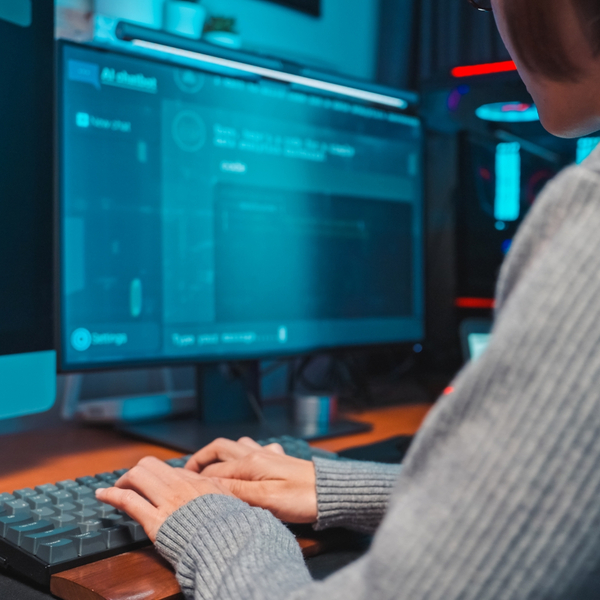Artificial intelligence is transforming cybersecurity, and in many ways taking it out of human hands. Cybercriminals are using AI to accelerate their activities and gain new insights into the systems they’re trying to attack. In recent articles, we talked specifically about the use of ChatGPT in cyberattacks. ChatGPT enables more effective phishing campaigns and “quieter,” more adaptive malware. AI is also used to crack passwords, find vulnerabilities and analyze stolen data.
AI-Enabled Security Has Become an Imperative in Today’s Threat Climate
AI-Enabled Security Has Become an Imperative in Today’s Threat Climate

At the same time, more organizations are adopting AI-enabled security tools to combat these threats. In a recent Mimecast survey, 92 percent of organizations said they plan to incorporate artificial intelligence in their cybersecurity strategies. About half (49 percent) said they already have done so.
In fact, AI-enabled security is fast becoming imperative. Human security analysts cannot react quickly enough to defend today’s complex attack surface against the onslaught of security threats. Given that many of these threats are powered by AI, there is no way that humans will win.

AI in Cybersecurity
At the most basic level, AI enables greater automation. Many IT teams are struggling with “alert fatigue” — it has become impossible for humans to investigate and respond to all the alerts security tools generate daily. Many of these alerts are duplicative or false positives. Secure teams often become so overwhelmed by the sheer number of alerts that they overlook or even ignore potential threats. AI-enabled tools can sift through large volumes of alerts and log data, and prioritize those requiring investigation.
Beyond that, AI empowers IT systems to adapt and operate as if they have an immune system. AI-enabled tools can detect new types of threats and events based on corollary data at incredible speed. Humans might eventually uncover those threats, but they will never find them as quickly as AI.

AI Security Applications
Here are some of the primary applications of AI in cybersecurity:
- Threat detection, investigation and response. Security information and event management (SIEM) tools collect and correlate data from systems, security tools, applications, users and endpoints. AI enables these tools to hunt for suspicious activities and detect and investigate threats. Best-in-class tools such as Microsoft Sentinel can also use threat intelligence and analytics to identify new types of threats.
- Automated incident response. AI-enabled tools can automatically take steps to contain the damage when a threat is detected. This may include alerting the security team, preventing malware from contacting its command-and-control server or quarantining affected systems. Microsoft Sentinel has built-in automation and orchestration tools that can execute many common tasks.
- Behavioral analysis. By monitoring and analyzing the behaviors of users and devices, AI-enabled tools can identify “normal” activities. Any anomalies are flagged as possible threats. For example, user login attempts at odd times of day or from unusual locations could indicate unauthorized access. Unusual data access requests or downloads could point to an insider threat or data exfiltration.
- Email filtering. Just as AI can be used to generate more effective phishing campaigns, AI enables more effective email filtering. Machine learning tools are trained to spot the signs of malicious emails and can analyze a wide range of factors in real time.
- Risk Prediction. AI tools can inventory and assess every asset attached to the network to identify potential vulnerabilities. These tools can even predict the likelihood of certain types of attacks. Organizations can then take steps to prevent a security incident.

How DeSeMa Can Help
Deploying AI may seem futile. After all, cybercriminals have the same tools. But you have the home field advantage. You know what your systems should look like and what they are supposed to be doing. DeSeMa can help you implement and tune AI-enabled security tools to take best advantage of that insight.
Will AI replace human security analysts? No — humans are still an important part of the equation. But AI offers the benefit of speed and can work in tandem with your security team to provide the best protection against today’s threats.
